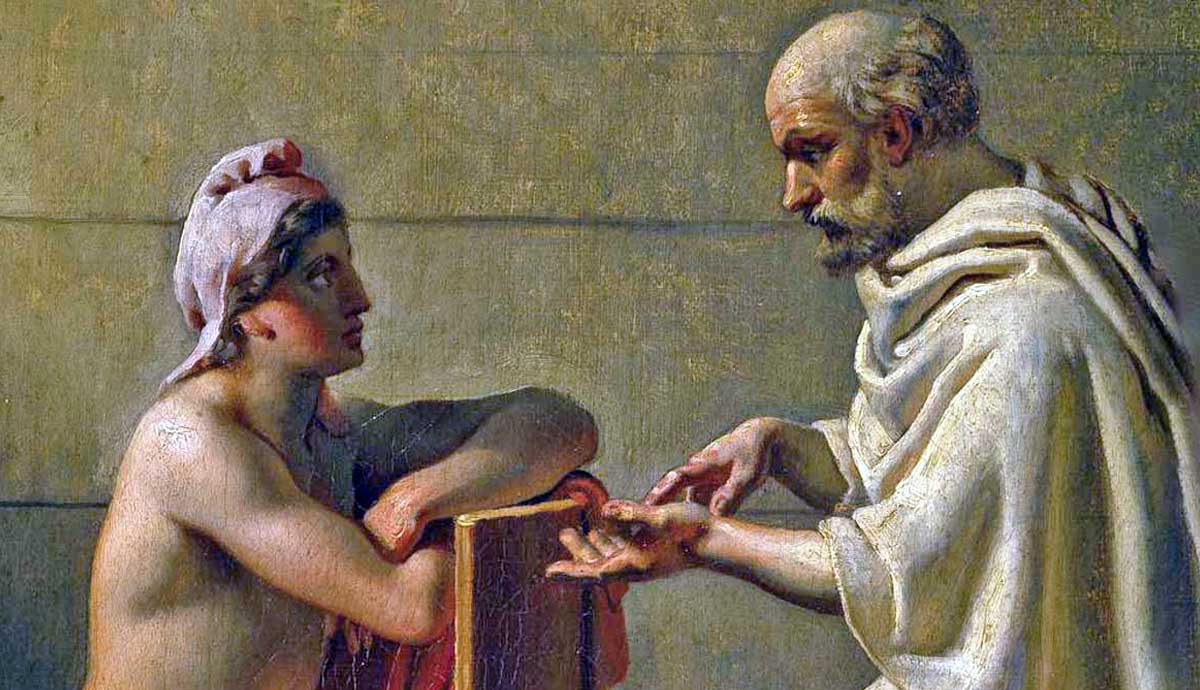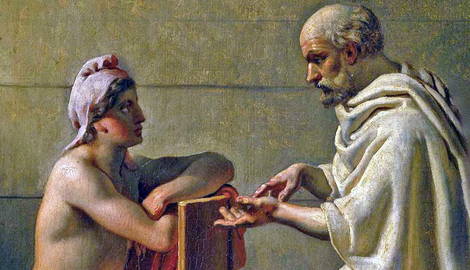
Socrates was an ancient philosopher who lived in Athens during the fifth century BCE. His teachings have gone on to influence Western philosophy, particularly regarding wisdom, virtue, and justice. One of his most enduring legacies, though, is his death. In 399 BC, a jury of Athenians deemed him a threat to the city’s youth, and he was killed. Although the execution was thousands of years ago, it is still discussed in modern ethical debates. Here are five reasons why.
Socrates’s Death Concerns Freedom of Speech

At the core of Socrates’s death lies freedom of speech. Although the ancient Greeks often pioneered free speech — their arts, education, and literature strained the limits of what could and couldn’t be discussed — their society didn’t allow for complete freedom. Many philosophers, whose works often challenged the status quo, had to be careful. For Socrates, his teachings were seen as dangerous and corrupting to the youth of Athens, and he was killed. In ethical debates today, the execution serves as an example for those who make uncomfortable inquiries, and it raises questions about how far the freedom of speech should extend and how extreme the punishment should be for those who violate boundaries.
It is Often Discussed in Relation to the Role of Government

Many modern-day scholars believe the charges against Socrates go further than what was officially stated. While people at the time did believe his teachings were dangerous to youth, there were probably political motivations as well since Socrates did not get along with the powerful elite and had friends involved in radical political movements. This might not be all that surprising, but it cast doubt on the circumstances of his execution. The government’s ability to kill citizens is already a controversial topic, but adding that the government might have been swayed one way or another by external factors calls into question whether the state can be the unbiased perpetrator of justice that it claims it is.
His Death Raises Questions About Capital Punishment

Socrates’s execution also provides ample arguments in ethical debates around capital punishment. Capital punishment — that is, the state-sanctioned practice of killing a person as a punishment for a crime — is a widely controversial topic that involves a range of political, legal, moral, and practical considerations. Proponents claim that it deters severe crimes and is retribution for heinous crimes. Opponents argue that it is immoral and a human rights violation. Aside from moral concerns, Socrates’s death creates ethical questions about what type of crime merits the death penalty, especially since the state itself arbitrarily decided the severity of his crime.
His Martyrdom Serves as a Potential Consequence for Dissenting Actions

A martyr is someone who voluntarily sacrifices something of great value, usually their life itself, for the sake of principle. While the term is traditionally used in a religious context (many saints were martyrs), some have also come to associate it with Socrates. He sacrificed his life for his philosophical principles, refusing to stop teaching and spreading his ideas even when threatened by the state. His martyrdom continues to be discussed in ethical debates today, giving way to questions about the consequences of standing up for beliefs and causing modern-day philosophers to examine their own beliefs and the lengths they’d go to for them.
Socrates’s Legacy Ensures He Remains Relevant in Debates

Socrates was one of the most influential thinkers in Western philosophy. His teachings have gone on to impact a variety of branches within the field — from ethics to political philosophy — and his teaching method is still used today, particularly in law schools and college campuses. As a result, his death continues to be discussed simply because he continues to be such a popular figure. His enduring legacy keeps Socrates at the forefront of scholarly minds, ensuring he remains relevant in debates. Similarly, nothing certifies the persisting discussion of a topic like uncertainty, and the suspicious circumstances and doubt that linger around his death guarantee that people will continue to talk about it.










